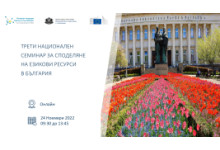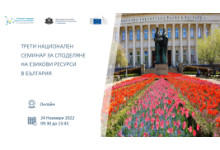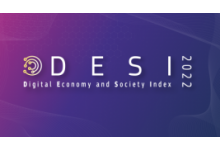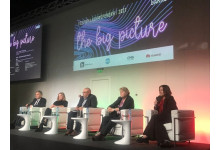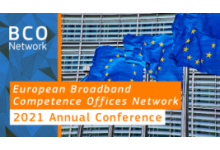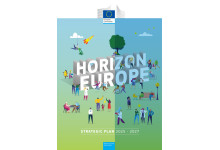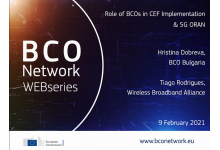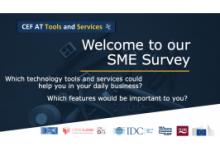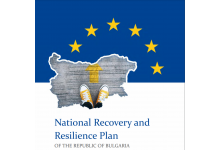IT news
On February 21, 2025, the Commission and the HRVP presented the Joint Communication to strengthen the security and resilience of submarine cables. It introduces a range of measures to bolster the resilience of this critical infrastructure, addressing prevention, detection, response, recovery, and deterrence.
Communication cables connect several Member States to one another, link islands to the EU mainland, and connect the EU to the rest of the world, carrying 99% of intercontinental internet traffic. Subsea electricity cables facilitate the integration of Member States' electricity markets, strengthen their security of supply, and deliver offshore renewable energy to the mainland.
The European Commission has adopted a revised Communication on State aid for broadband networks (‘Broadband Guidelines'). The revised Broadband Guidelines set out the rules under which the Commission will assess State aid measures notified by Member States to support the deployment and take-up of broadband networks in the EU. The new rules contribute to the EU's strategic objectives of ensuring gigabit connectivity for everyone and 5G coverage everywhere by the end of the decade, which is essential to achieve the digital transition of the Union. The new Guidelines will enter into force the day following their publication in the Official Journal of the European Union, which is expected in January 2023.
The Ministry of Transport and Communications held the Third ELRC Workshop in Bulgaria online on 24 November 2022. The event takes place within the European Language Resources Coordination (ELRC) project, in cooperation with the Institute for the Bulgarian Language at the Bulgarian Academy of Sciences. The project is funded by the Connecting Europe Facility Telecom.
The Ministry of Transport and Communications organized Third National ELRC Workshop in Bulgaria, which will be held online on November 24, 2022, at 9:30 am. The event takes place within the European Language Resources Coordination (ELRC) project, in cooperation with the Institute for the Bulgarian Language at the Bulgarian Academy of Sciences.
Тhe European Commission has monitored Member States’ progress in digital and published annual Digital Economy and Society Index (DESI) reports. The DESI Index ranks Member States according to their level of digitalisation and analyses their relative progress over the last five years, considering their starting point.
The global data volume is growing very fast. Whereas cloud computing happens mostly in large data-centres today, by 2025 this trend will reverse: 80% of all data is expected to be processed in smart devices closer to the user, known as edge computing.
The availability of both edge and cloud computing is essential in a computing continuum to ensure that data is processed in the most efficient manner. Energy-efficient and trustworthy edge and cloud infrastructures will be fundamental for the sustainable use of edge and cloud computing technologies.
On November 5, 2021, the Annual Conference of the Bulgarian Association of Cable and Communication Operators (BACCO) was held under the motto "The Big Picture". At the event was discussed key elements in the development of the telecommunications industry, the EU Recovery and Resilience Facility and the goals and activities set in the National Recovery and Resilience Plan for digitalization and connectivity, the development of e-governce and future actions of the National Regulatory Authority for the release of radio spectrum.
The event entitled "Working together for connectivity" took place online on October 26, 2021. The Annual Conference marked the BCO Network's five-year milestone and everything achieved in this period, working in the specialized Support Mechanism of the European Commission.
The participants reported the success and intensive activities of the Network with a large number of members and conducted over 55 specialized trainings on various topics in the field of connectivity.
This handbook aims to assist public authorities in planning, implementing, and monitoring broadband projects within their territories.
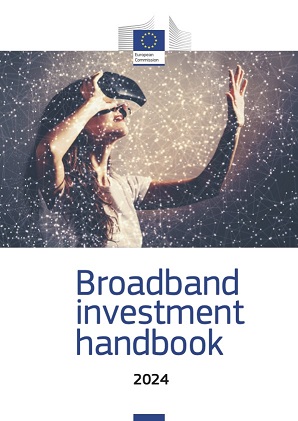
On 20 March 2024 the European Commission (EC) has adopted the Horizon Europe strategic plan 2025-2027 for research and innovation to underpin journey to a green, digital and resilient future.
Regulation (EU) 2021/695 establishes Horizon Europe – the Framework Programme for Research and Innovation for the period 2021 to 2027. The budget for the seven-year period is over 86 billion euros to strengthen the EU's scientific and technological bases and to stimulate innovation, competitiveness and job creation in Europe.
On 25 March 2021, the Member States, in close cooperation with the Commission, agreed on a Union-wide Connectivity Toolbox, pursuant to the Connectivity Recommendation of 18 September 2020. The Toolbox consists of a set of best practices that are considered as the most efficient in allowing and encouraging operators to roll out very high capacity networks.
On February 9, 2021, was held a seminar of the Broadband Competence Offices (BCO) Network, at which representatives of the National Broadband Competence Office (BCO Bulgaria) were invited to share experience and good practices in promoting the initiative of the European Commission WiFi4EU developed under the Connecting Europe Facility (CEF) to build free high-speed and high-quality wireless internet connection in public areas.
The International Telecommunication Union (ITU) organize a Roundtable on “The Telecommunications industry in the post-COVID-19 world”, to be held on 4 February 2021, 14.00-16.00 CET.
The objective of this Roundtable is to understand and further take stock on some of the changes and potential funding challenges within the telecommunications sector in the post-COVID-19 world, focusing on:
What are the new business and operating models required to connect everyone?
On behalf of the European Commission, the CEF Automated Translation Tools and Services consortium launched a survey in December 2020 to find out how European SMEs would like eTranslation (the CEF Automated Translation platform) to be improved and expanded to include new digital services. You can find the link to the survey below!
The survey focuses on four key areas identified as priorities by the European Commission:
The new Recovery and Resilience Facility will provide large-scale financial support for Member States' reforms and investments to mitigate the economic and social impact of the COVID-19 pandemic, and to make EU economies more sustainable, resilient to shocks and better prepared for the challenges of environmental and digital transition.
By Decision No 555 and Decision No 556 of the Council of Ministers of 6 August 2020, an updated National Broadband Infrastructure Plan for Next Generation Access "Connected Bulgaria" and an Updated policy in the field of electronic communications of the Republic of Bulgaria were adopted.
By Decision No 493 of 21 July 2020 a national strategic document "Digital Transformation of Bulgaria for the period 2020-2030" was adopted. The document sets out the principles of digital change in the main areas of economic life. The aim of the widespread use of digital technologies is to reduce the use of energy and resources.






